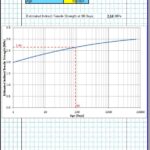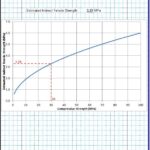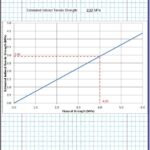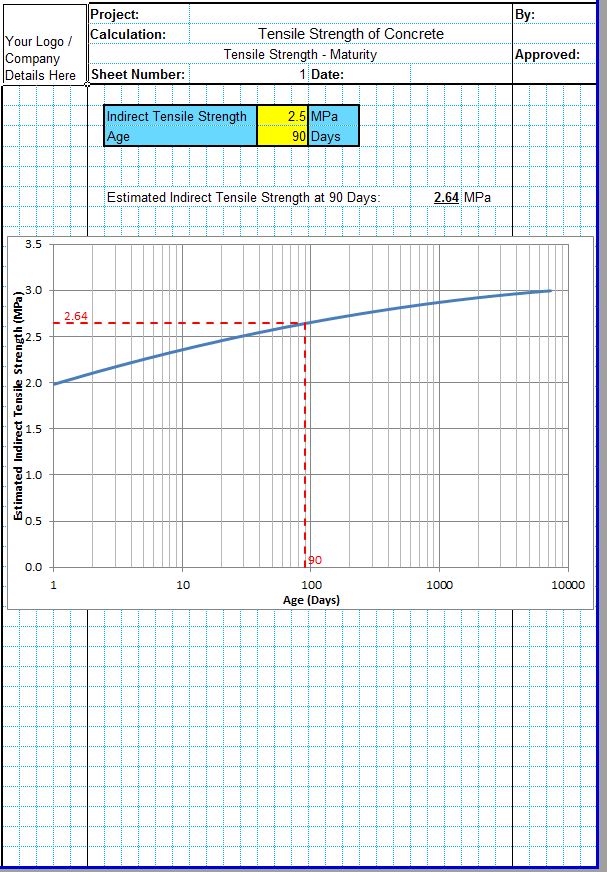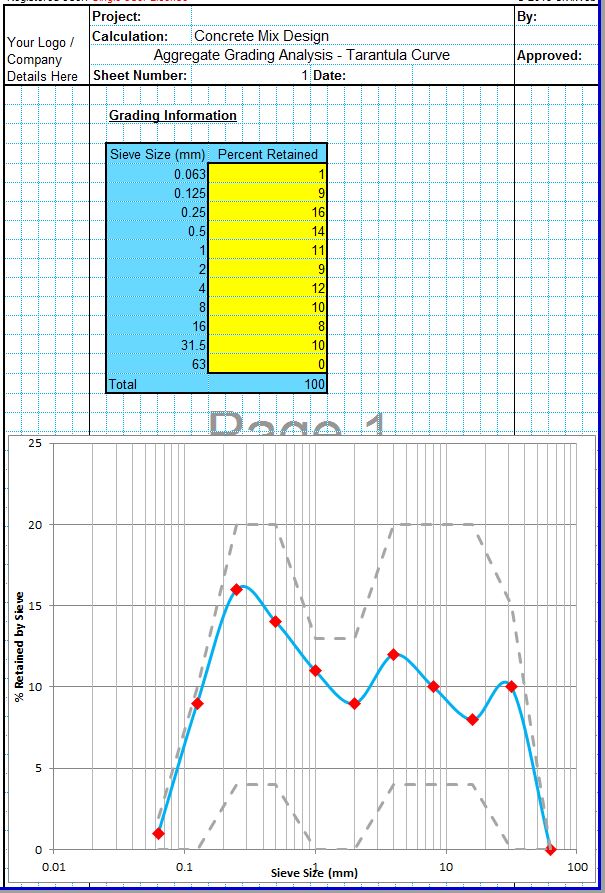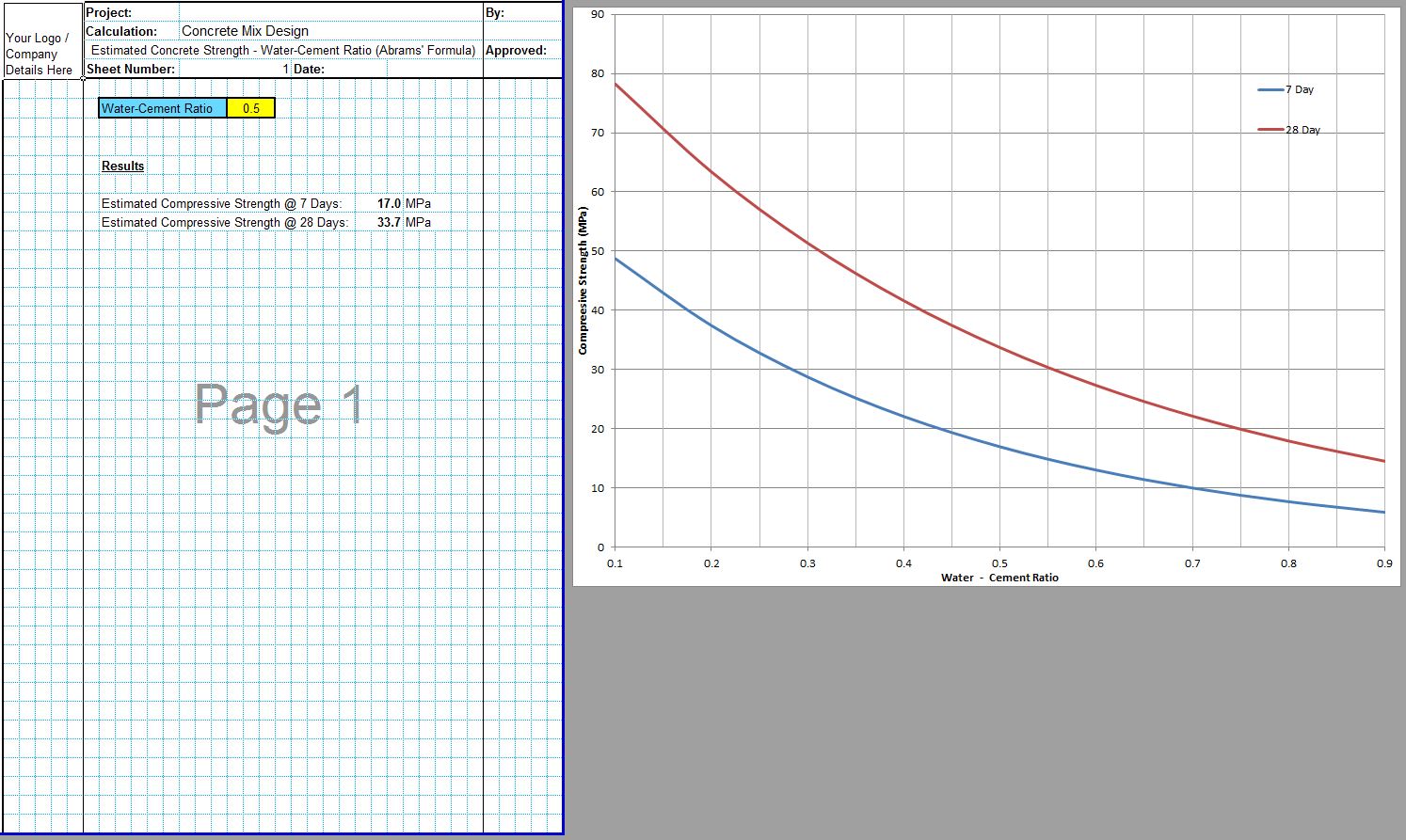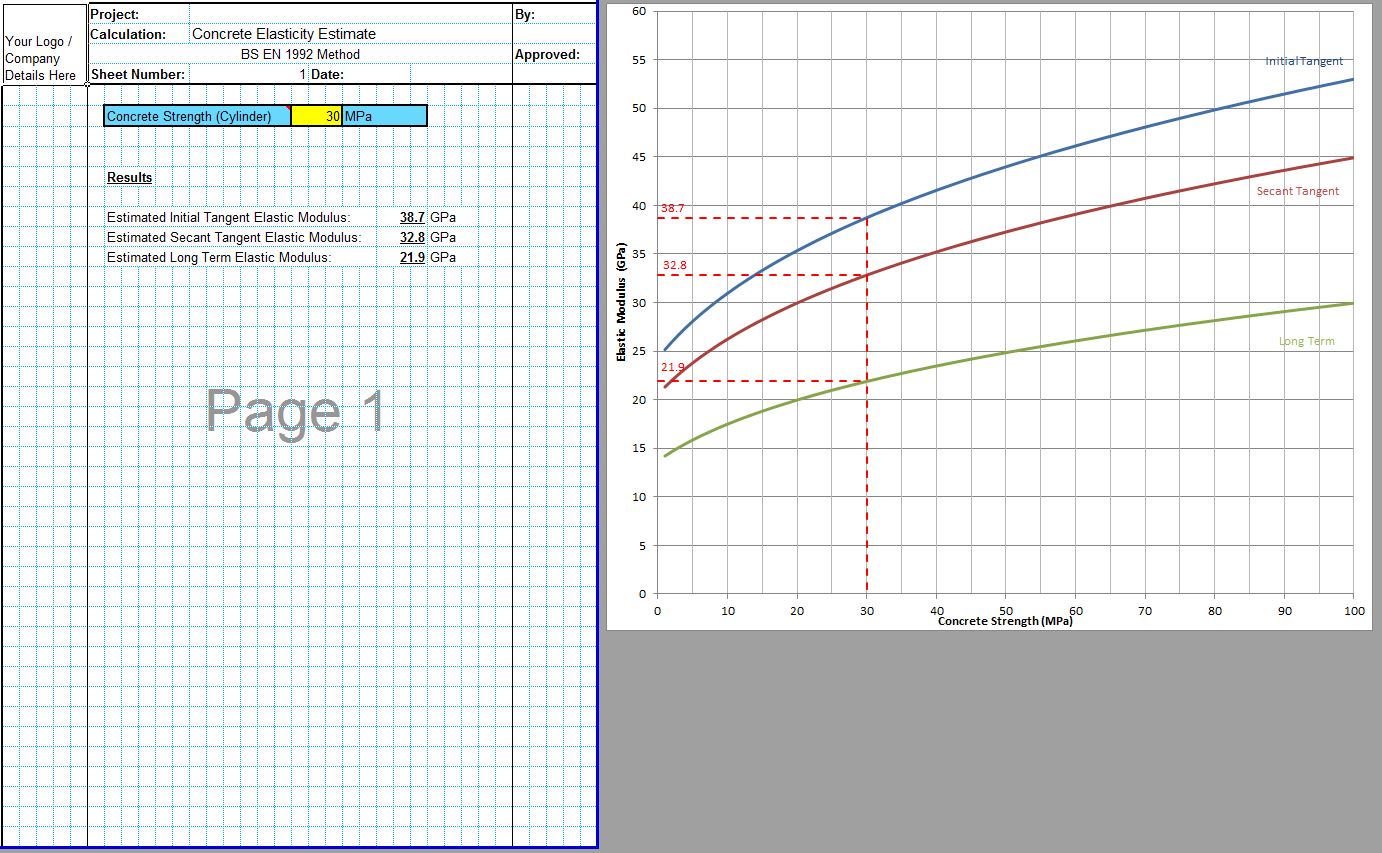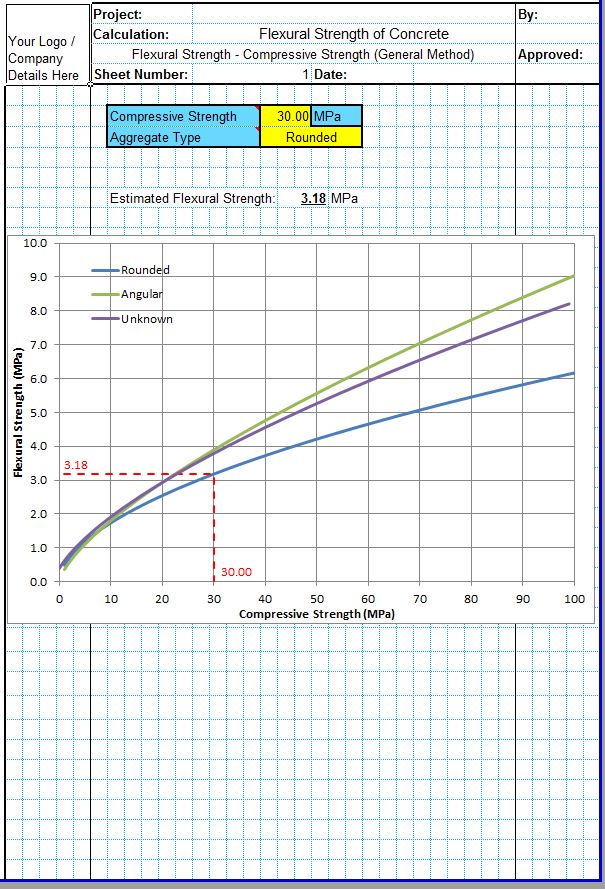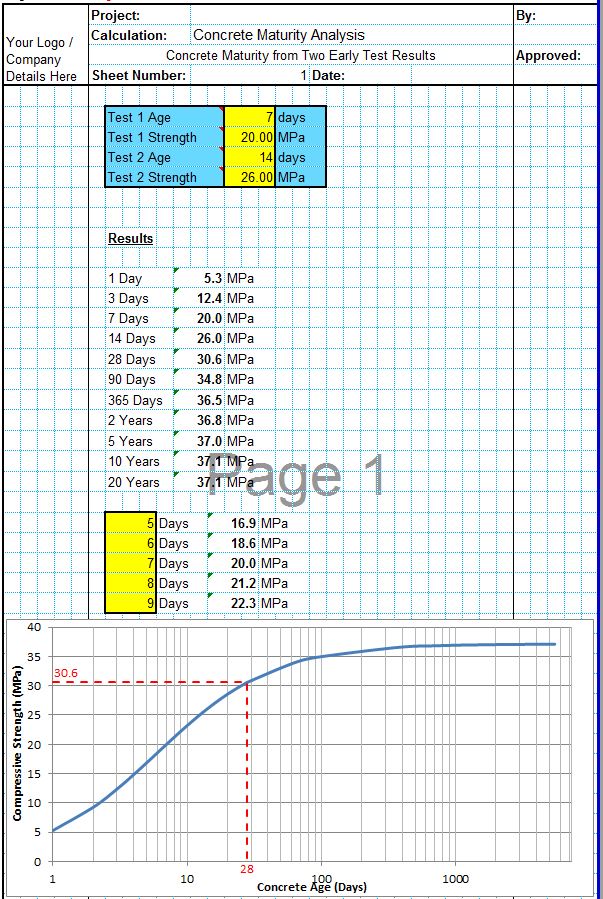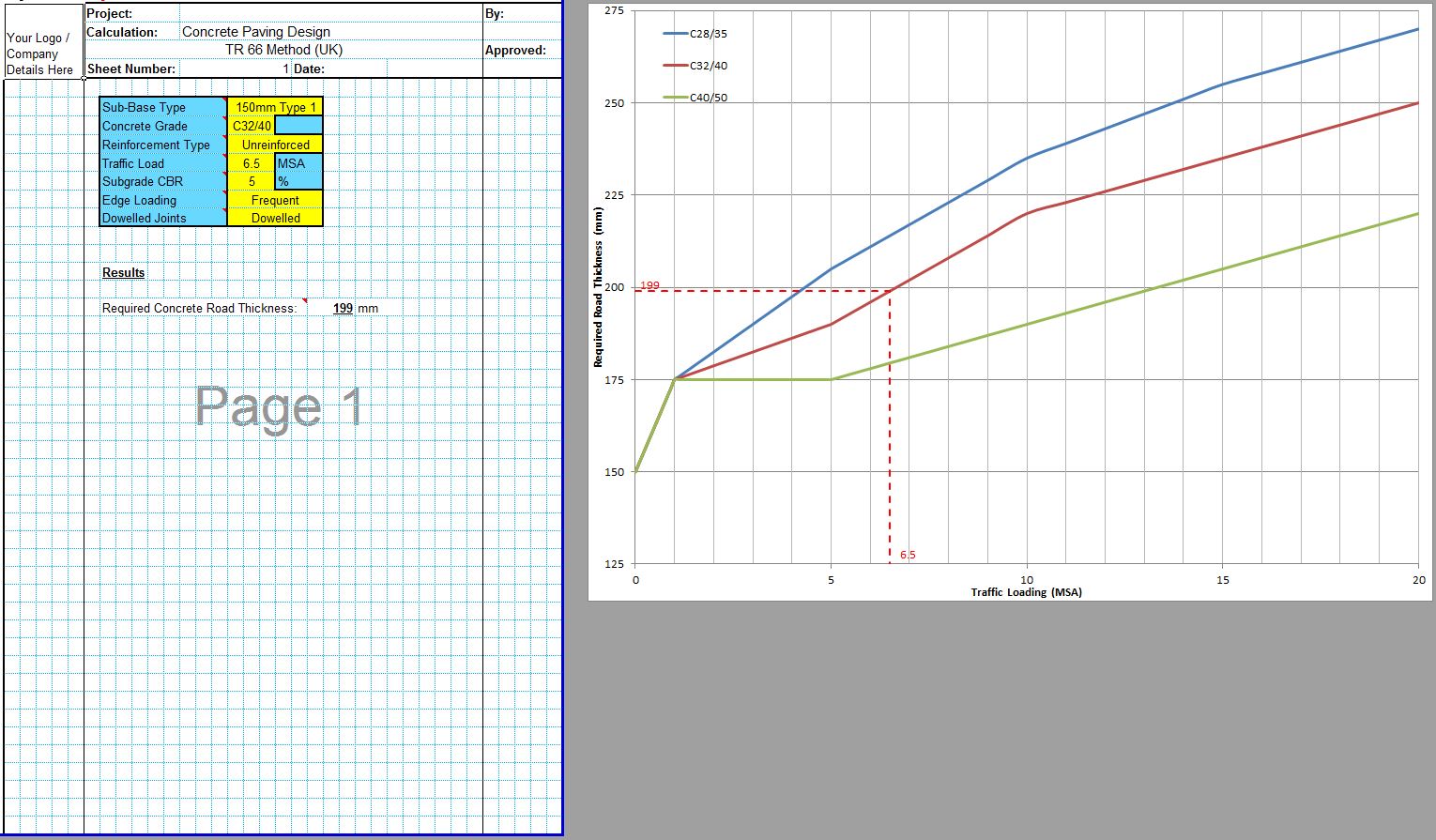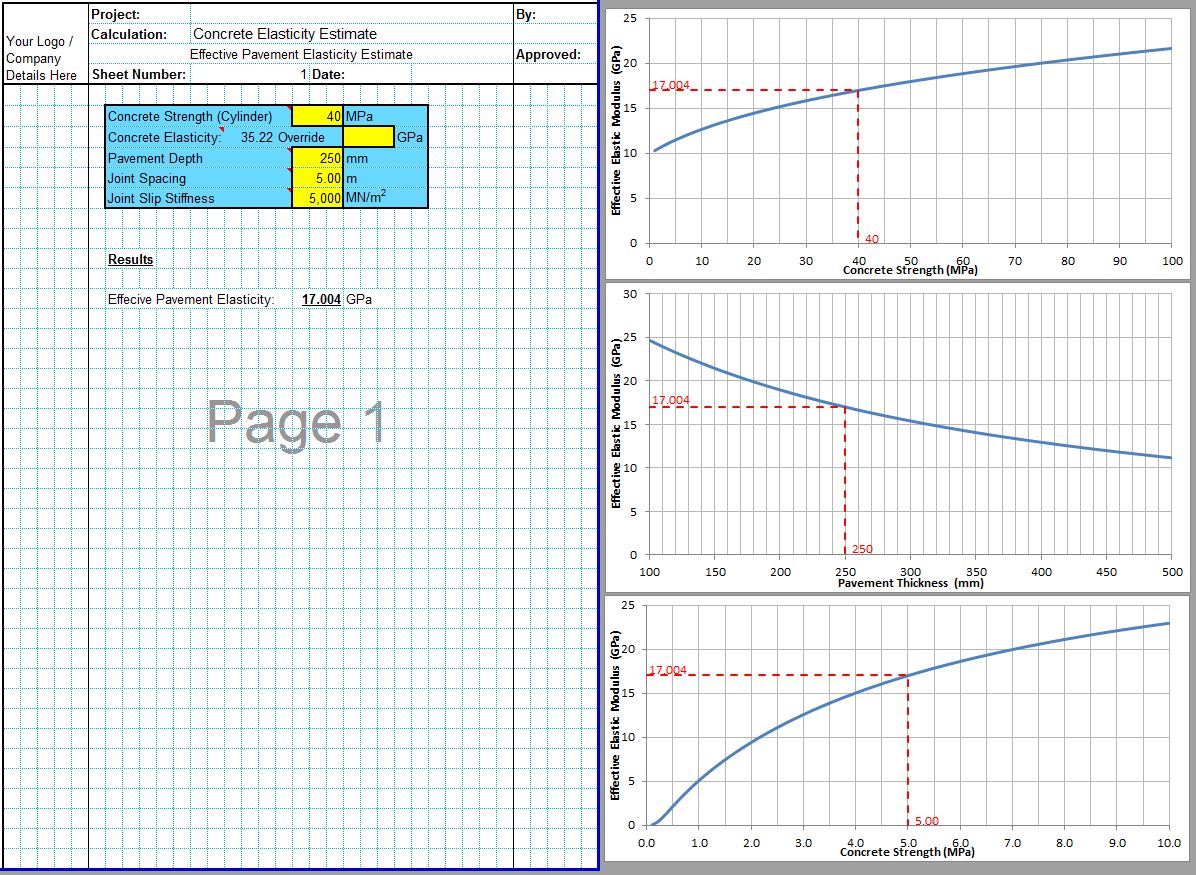The tensile strength of concrete describes the concretes ability to resist forces trying to pull the concrete apart. These forces usually derive from bending actions which cause tensile stresses in the bottom of the concrete. The tensile strength of concrete is particularly low, especially when compared to its compressive strength which is high. For this reason structural concrete is usually reinforced with steel bars which resist the tensile forces while the concrete resists the compressive forces. The tensile strength of reinforced concrete depends entirely on the size and number of steel reinforcing bars present.
Because the tensile strength of concrete is so low, it is seldom required as an input in structural concrete design. Indeed the tensile strength of the concrete is usually ignored entirely in structural design. In some cases however the tensile strength of the concrete is important such as for unreinforced concrete or where cracking must be avoided.
The CivilWeb Tensile Strength of Concrete spreadsheet includes useful design tools for assessing the tensile strength maturity of concrete at any age as well as tools to estimate the relationship between tensile strength and compressive and flexural strength. These general relationships are explained in our Tensile Strength and Compressive Strength post and our Tensile Strength and Flexural Strength post.
The Tensile Strength of Concrete spreadsheet can be purchased for just £5 at the bottom of this page. Alternatively the CivilWeb Concrete Properties Suite of spreadsheets includes all our tensile, compressive and flexural strength spreadsheets for only £10.
Tensile Strength of Concrete
The tensile strength of the concrete is critical for early thermal and shrinkage cracking of the concrete. It is used in calculations to determine the likelihood of early thermal cracking where the gain in tensile strength must stay greater than the stress caused by the shrinkage of the concrete. If the stress exceeds the strength then the concrete will crack. This is particularly important for concrete pavements and other non-reinforced concrete members.
Concrete is composed of a composite matrix of cement paste and coarse aggregates which is relatively strong in compression as there are few voids for compression and the paste and rock aggregates are quite strong. This composite matrix however is relatively weak in tension as this is governed by the bond strength between the cement paste and the aggregates rather than the materials strength themselves.
Tensile Strength Maturity
The tensile strength of the concrete matures in a similar manner to the compressive strength and the flexural strength. Indeed the maturity relationships for flexural strength can also be used for indirect tensile strength. Each concrete mix will gain strength in a different manner, however this relationship can be used as a rough estimate of the indirect tensile strength of any pavement quality concrete mix at any age. The specific mix used must be tested if this value is to be incorporated into a design. A calculator tool is included with the CivilWeb Tensile Strength of Concrete spreadsheet.
CivilWeb Tensile Strength of Concrete Spreadsheet
Buy now for only £5.
Our full Concrete Properties Suite of spreadsheets is available for only £10.
Download Free Trial Version
To try out a fully functional free trail version of this software, please enter your email address below to sign up to our newsletter.

